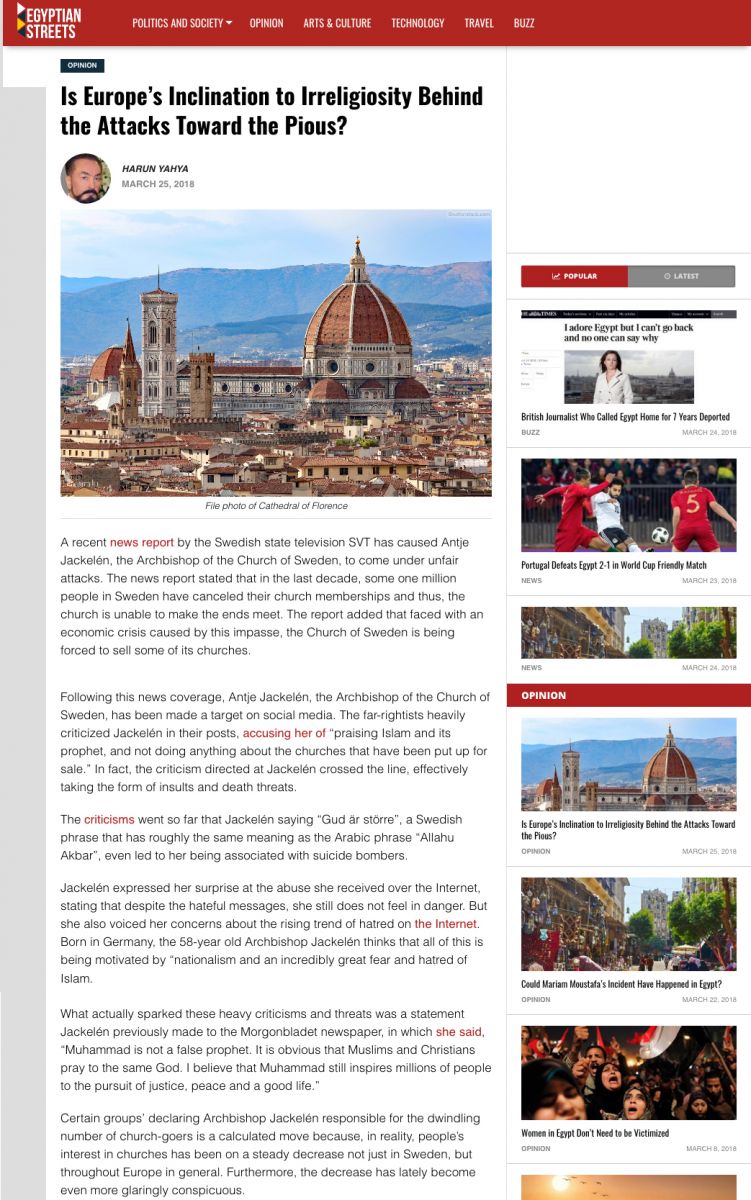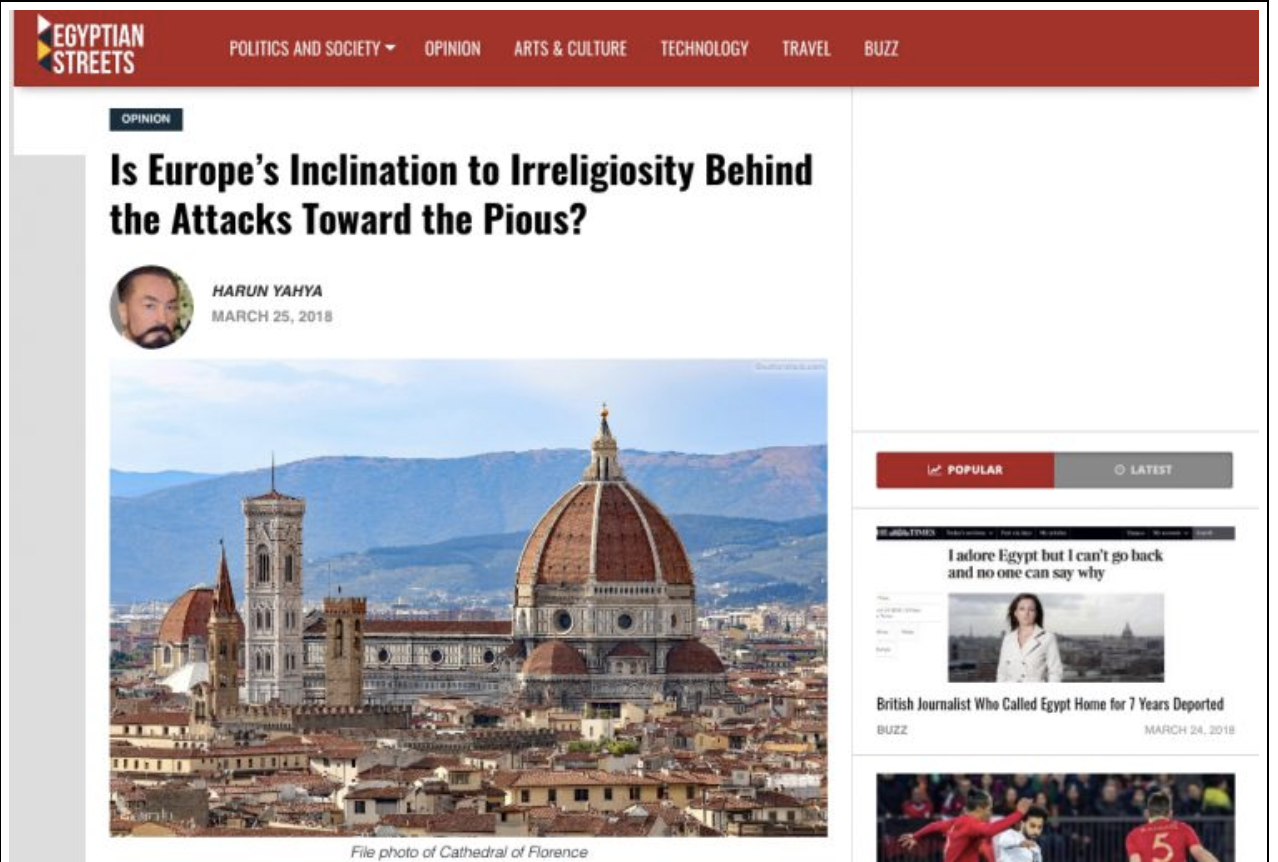
A recent news report by the Swedish state television SVT has caused Antje Jackelén, the Archbishop of the Church of Sweden, to come under unfair attacks. The news report stated that in the last decade, some one million people in Sweden have canceled their church memberships and thus, the church is unable to make the ends meet. The report added that faced with an economic crisis caused by this impasse, the Church of Sweden is being forced to sell some of its churches.
Following this news coverage, Antje Jackelén, the Archbishop of the Church of Sweden, has been made a target on social media. The far-rightists heavily criticized Jackelén in their posts, accusing her of “praising Islam and its prophet, and not doing anything about the churches that have been put up for sale.” In fact, the criticism directed at Jackelén crossed the line, effectively taking the form of insults and death threats.
The criticisms went so far that Jackelén saying “Gud är större”, a Swedish phrase that has roughly the same meaning as the Arabic phrase “Allahu Akbar”, even led to her being associated with suicide bombers.
Jackelén expressed her surprise at the abuse she received over the Internet, stating that despite the hateful messages, she still does not feel in danger. But she also voiced her concerns about the rising trend of hatred on the Internet. Born in Germany, the 58-year old Archbishop Jackelén thinks that all of this is being motivated by “nationalism and an incredibly great fear and hatred of Islam.
What actually sparked these heavy criticisms and threats was a statement Jackelén previously made to the Morgonbladet newspaper, in which she said, “Muhammad is not a false prophet. It is obvious that Muslims and Christians pray to the same God. I believe that Muhammad still inspires millions of people to the pursuit of justice, peace and a good life.”
Certain groups’ declaring Archbishop Jackelén responsible for the dwindling number of church-goers is a calculated move because, in reality, people’s interest in churches has been on a steady decrease not just in Sweden, but throughout Europe in general. Furthermore, the decrease has lately become even more glaringly conspicuous.
As a matter of fact, Church of Sweden press officer Martin Larsson argues that the main reason for the fall in membership in Swedish churches is the decline of faith in God, adding that those born in the 1990’s are especially prone to abandoning the Church.
The percentage of those who identify themselves as religious in Europe further verifies Martin Larsson’s statement. When Europe is considered as a whole, the percentage of those who consider themselves religious is 26 percent in Holland, 23 percent in the Czech Republic and a meager 19 percent in Sweden.
In Britain, 4 in 10 people who were brought up as Anglicans or Catholics currently identify themselves as atheists. This rate, which was 40 percent in 1999, is as high as 52 percent in Scotland.
This trend of moving away from Christianity causes churches to lose their members not only in Sweden but in many European countries. Churches left without communities are either razed or re-purposed for other uses.
According to records of the German Protestant Church, 82 churches were demolished in Germany between 1990 and 2011. More than 200 Protestant churches changed hands, which were either turned into private properties or businesses such as restaurants, discos, pizza parlors, sculpture workshops, etc.
What led to the emergence of such a picture are the various mistakes Europe made while defining democracy and secularism as its inherent values. Certain circles have forgotten the fact that European secularism signifies freedom for all forms of belief, erroneously equated the term with “atheism”. Secularism is surely a valuable and significant notion; its misinterpretation, however, has dire consequences. As a result, severe cultural degeneration and sexual perversion have found a foothold in many European countries in the name of “human rights” or “freedom.” This grave picture has especially driven European youth into a lack of love, loneliness, disbelief, and even suicide. This is a situation that is very undesirable. Societies can only attain happiness and progress when they are spiritually strong. Europe needs to take this fact into consideration if it wishes to become better, more powerful and remain as the pioneer of democracy.
Today, those who despise the fanaticism and bigotry practiced in Europe -be it in the name of Christianity or Islam- do not make any attempt to tackle this issue by preaching the true religion. Bigotry stems from the superstitious religions conception, a fact that is clearly forgotten as indicated by the hatred directed towards religions and the religious people. The task of putting an end to the growing racial and religious hatred in Europe falls on both Christians and Muslims. Archbishop Antje Jackelén has fulfilled this obligation through her positive statements regarding Islam. Muslims, too, have to do more than merely saying “Islam is the religion of peace” and take some concrete steps in this direction.
In the Holy Book of Islam, God commands Muslims to conduct compassionate and respectful relations with Christians. Muslims are obliged to defend the rights of Christians and prevent the radical-leaning individuals from harming them. Qur’an abiding Muslims are supposed to treat Christians with mercy and respect, and try to make up for all the troubles faced by Christians.
They need to consider churches being shut down and Christians abandoning their religion as a critical issue and make a joint effort with Christian society for a solution that will help reintroduce these people into Christianity. The existence of a stronger and more devoutly pious People of the Book (Christians and Jews) is crucial for Muslims as well. For this reason, Qur’an abiding Muslims engaging in an intellectual effort and siding with the People of the Book against the bigots who treat the People of the Book with hostility will play a vital role in restoring Christianity to its former glory in Europe.
Adnan Oktar's piece in Egyptian Streets (Egypt) :


